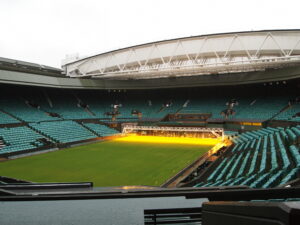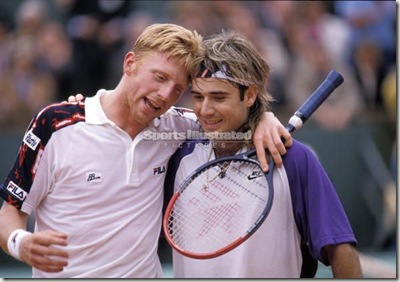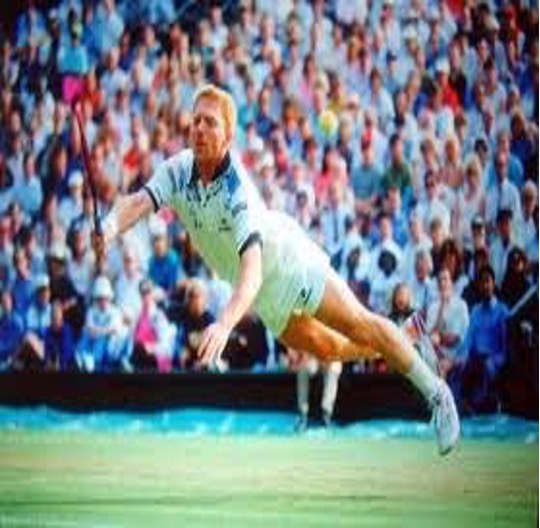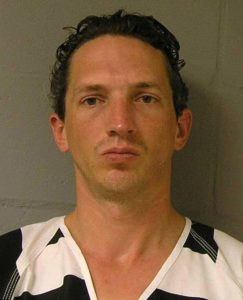At the age of seventeen, the young German prodigy entered the court at the legendary All England Tennis Club with lots of excitement and high expectations. While Becker was seen as the biggest underdog at the 1985 Wimbledon Championships, everyone was excited to see what damage Becker could do—Boris Becker, who was born in Leimen, Germany, on November 22, 1967. Becker’s aggressive serve and volley playstyle changed the game of Tennis with his legendary “Becker Hecht’s” that people still talk about today. Boris Becker dedicated his childhood to Tennis; in his early junior years, he was already considered an exceptionally talented athlete. At the age of fourteen, Becker won the highly prestigious Orange Bowl, which takes place in Florida, in the United States. By age fifteen, he had already reached the finals of the Junior Wimbledon Tournament, showcasing his capabilities on grass. Becker had already traveled a lot as a young teenager. Becker’s father, Karl-Heinz Becker, founded a Tennis Centre in Leimen, where Boris learned to play Tennis. Other mentionable successes Becker celebrated in his junior career are his win at the South German championships and the first German Youth Tennis Tournament. He was chosen for the German Tennis Federation’s junior team at ten.1
In Becker’s first-ever Wimbledon match, he faced the thirty-two-year-old American Hank Pfister. In 1983, Pfister managed to get up to a career-high ranking of 19. Pfister’s playstyle was similar to Becker’s aggressive serve-and-volley playstyle. The odds were clearly defined, with Pfister being an experienced player who had been on this stage multiple times before. All the attention was on the young German Tennis prodigy. Before even stepping foot on the grass of the All-England Club, Becker made Tennis history by being the youngest player to play in the Wimbledon main draw. As soon as Becker entered the court, the crowd went wild, and everyone was excited to see what this young gentleman was capable of. As most people expected, Pfister showed Becker how you have to perform on such a stage to win a match. Pfister, with all his experience, made it look easy. Pfister took the first set 6:4, and although he played incredibly high, fans still expected Becker to step up and give Pfister a real challenge. Becker did step up in the second set and showed the whole world for the first time that he was made for this big Tennis stage. He not only impressed the fans, but he also impressed his opponent with his aggressive playstyle. Becker came to the net on nearly every serve of his, which made it extremely hard for Pfister to find his rhythm on Becker’s service games. Becker took the second set 6:3, and the roles changed, with Pfister being upset and overwhelmed by Becker. On the other side of the court, Becker was the complete opposite. He had a slight smile and was enjoying the moment. In the third set, nothing really changed. Becker still dominated nearly every point, giving Pfister no time to breathe. In the third set, Becker broke Pfister twice and won the third set 6:2, which is impressive against someone like Pfister on grass, who is tall and whose playstyle is made for grass. In the fourth set, Pfister got back to his best Tennis, and the fans witnessed a spectacular fourth set that was decided by only one break. Becker was the one who also stepped up in the fourth set and decided the set with 6:4 to defeat Hank Pfister.2
The Final Score of Becker’s first-ever Main Draw match at Wimbledon was 4:6, 6:3, 6:2, 6:4. This success was massive for him at such a young age because Becker was also struggling with a major injury before the tournament, and his mother did not want him to become pro in Tennis. “I was going to make it. I broke my ankle in 1984, during my first professional tournament, playing against Billy Scanlon. My parents didn’t want me to become a tennis pro, and when I called my mother she said to me, ‘I told you so, you should have stayed in school.’ I questioned myself a lot during the next few months of my rehab. That’s when you find out how much you want it.”3 In Pfister’s post-match interview, he talked about Becker’s performance and told the media that Becker played “out of his mind” that day and how he expected Becker to lose in the second round.

In the second round, Becker faced Matt Anger, also from the United States. Anger was a successful junior player, winning the Junior Wimbledon Boys tournament in 1981, resulting in a No.1 ranking in junior Tennis. Although Anger showed lots of potential, he decided to play college tennis at USC from 1982 to 1984 instead of going pro. After two successful college years, he decided to go pro in 1984. Anger had yet to gain much experience in the pro circuit.4 Furthermore, Anger also had a tough battle in the first round, winning in five sets. In the media, Becker was seen as the favorite for the match because of his convincing performance in the first round, and Becker delivered as expected. Becker controlled the entire match from the first until the last point, and Anger did not stand a chance against Becker’s aggressive playstyle. The final result was 6:0, 6:1, 6:3. 6 Although the media and the fans expected Becker to win the match, everyone was highly impressed by the result, especially on grass, where such results do not occur.5
Moving on to the third round, we are moving to the crucial time of tournaments, where the slightest mistake could end your chances of winning. It is always hard to describe it, but the longer those big tournaments go on, the more intense the crowd and the more intense the players and coaches get. It would be best if you experienced it to get the whole experience of this unique atmosphere. Becker’s third round was Joakim Nyström from Sweden. Nyström was an excellent player with a lot of experience. He was seeded at number seven at Wimbledon. Although you may believe that Nyström would be the heavy favorite for this match, some experts expected Becker to conjure a success because Nyström was more of a clay player than a grass player. The atmosphere was astonishing as soon as both players entered the tennis court. Although Nyström was experienced and more used to this kind of atmosphere, he was still nervous, and neither player could play at his highest capabilities in the first set. While Becker had some chances to break Nyström’s serve in the first set, he still lost the first set 6:3. Both players raised their level in the second set, and the fans got the level they expected. Becker changed the rhythm by adding more serve and volley plays to his service games and tried to keep the points shorter. This plan worked out perfectly for Becker, and he won the second set with 7:6. In the third set, Becker kept on playing his game, and with each point, he got more confident and certain, and on the other side of the court, Nyström started to have negative body language, which we had not seen from him at this tournament until then. Becker completely dominated the third set and won it 6:1. Most people already expected Becker to cruise through the fourth set.6 Still, Nyström is unlike the regular junior player that Becker played a few months before Wimbledon. Nyström used all his experience and took a long bathroom break after losing the third set, which got Becker out of rhythm. Nyström started to slow down the points so Becker would start thinking about his shots more, and it worked out perfectly for Nyström. Becker started missing easy shots he would usually not miss, and the match shifted back to Nyström, who won the set 6:4, tying the match. It was all about who could perform at their highest level in this deciding fifth set. Would it be the German seventeen-year-old prospect who had already shocked the whole Tennis world by winning his first two rounds, or would it be the number seven seed with all his experience? As expected, both started in the fifth carefully because the slightest mistake in those big moments could settle your future in this match. But neither player gave the other anything until 8:7 for Becker on Nyström’s serve. The game’s first point went to Nyström, but after that, Becker stepped up as if he had been in this situation a hundred times before. Becker easily took the game’s following four points and won the match with 3:6, 7:6, 6:1, 4:6, and 9:7. Who would have thought this unknown seventeen-year-old would make it this far just a few weeks before the tournament started?
Moving on to the fourth round, we are also moving to the second week of Wimbledon Main Draw. At the beginning of the first week, 128 players were fighting for a spot in the second week, and now the tournament was down to sixteen players who still dreamed of winning Wimbledon. While Becker is the story of the 1985 Wimbledon tournament, there are still three other qualifiers in the draw who showed how special that year’s Wimbledon was. Also in the fourth round with Becker was the Number sixteen seed, Tim Mayotte. Mayotte was from the United States, 6’3″ tall, and right-handed. Mayotte’s best-ever performance at Wimbledon was in 1982, when he reached the Semi-Final. This fourth-round match would be a prime example of grass-court tennis; both players loved to come to the net, be aggressive, and keep the points short. From the first point on, Becker played at a high level and broke Mayotte’s serve early in the first set. Becker never gave up that break in the first set and won it 6:3. In the second set, it seemed like Becker would cruise through his fourth-round match. He played at such a high level, but in Tennis, you always have to be prepared for your opponent to return; this scenario occurred on this day.7 Becker made a few easy, unforced errors, which brought Mayotte back into this second set, and Mayotte also started playing at a higher level. It seemed as if Becker was not prepared for this to happen. Mayotte won the second set 6:4, and now it would be interesting to see how Becker reacted to this setback. Obviously, Becker has been in a similar situation in his young career before, but he had never been in this situation on such a big stage before. In those situations, the best separates from the others. As expected, Becker was able to bounce back, and he played at an extremely high level again, but on the other side of the net, Mayotte also played at a similar level. Mayotte won the third set 7:6. After Mayotte won that third set, and although he won the last two sets, Becker’s body language was still positive, and Becker would not give up. Similar to the third set, both players kept on playing at a high level, but this time, Becker was the one who could win the set-breaker. Within two days, this was Becker’s second fifth-set match, and everyone was thrilled to see if his body would be capable of this stress. And Becker once again shocked the tennis world. Becker won the fifth set 6:2, and in this fifth set, he played as well as ever before. There were no signs of tiredness or tidiness. In his first-ever big tournament, Becker was already showing what he was capable of; while every tennis fan may enjoy it, the players who have to play probably do not enjoy Becker’s sudden rise. After Becker lost the third set, he went up to the chair umpire and told him he was done because he turned his ankle in the third set. But Ion Tiriac, Becker’s manager, was the one who forced Becker to keep playing the match. “Tiriac didn’t give a damn; he just walked out onto the court,” said John Mayotte, Tim’s brother, who was there. “Tim objected, but it was a nice-guy-from-New-England objection, and Boris got the ankle taped and found a way to win.” 8 After a hard-fought battle against one of his friends, Becker was a match due to his ankle injury, but fortunately, his injury was not as bad as he thought it would be.
In the quarterfinals, Becker faced the twenty-two-year-old French Henry Leconte, who was still beginning his professional career, but had already reached the fourth round of the Australian Open at the beginning of the year. Another aspect that makes this quarter-final match-up interesting is that Becker and Leconte were close friends. Leconte beat Ivan Lendl, the #2 seed, in the fourth round in four sets, which is an impressive accomplishment. Once Becker and Leconte entered the court, there was no sign of friendship anymore. As expected, both players came out and played at a high level, and both could hold serves throughout the whole first set. Then, at 6:6, Becker was the one who was braver and went for his shots. Becker took the first set 7:6. In the second set, Leconte continued playing at a high level, while he had some dips in his game, giving Leconte some extra confidence. Leconte broke Becker’s serve in the first game of the second set, and Leconte never gave that lead away anymore. Leconte took home the second set with 6:3, and Becker went straight to the bathroom to reset after losing the set. Becker returned strong from his bathroom break, but Leconte was holding up strong until Leconte’s serve at 4:3. Becker played a phenomenal game. Leconte did not stand a chance in that game, and with that, Becker also took the third set at 6:3. After that set, Becker couldn’t be stopped anymore, and there was nothing Leconte could do to stop Becker’s legendary run. Becker won the match 7:6, 3:6, 6:3, 6:4.9

In the first set, Järryd did what he does best, playing cleverly and waiting for his chances. Becker was overwhelmed by Järryd because his playstyle was highly orthodox, and it was hard to find your rhythm. Järryd took the first set with 6:2 and made Becker look like he did not belong there, but Becker fought and tried to find ways to break Järryd’s rhythm in the second set. The fans also finally got the close match they expected. Both players raised their level, and Becker found solutions to Järryd’s orthodox playstyle. The second set was decided in a set tiebreak at 6:6, and it already seemed as if Järryd would take this second set. Still, as the pressure rose, Becker’s level also rose. Becker managed to win six straight points after being down 1:3. After Järryd’s exceptional tennis in the first set, and no one would have thought that Becker could come back, especially as this was the first time that he was on such a big stage, he did not behave like a seventeen-year-old; he behaved as though he had been in this situation a million times before. Going into the third set, Becker immediately broke Järryd, which gave him a massive advantage with such a strong serve, and Becker never gave that lead away in that third set. Becker took the third set with 6:3, and suddenly, he was one set away from the Finals. In the fourth set, Becker kept doing what he did best: play serve and volley and impress the crowd. In the first set, Becker did not stand a chance, and after two more sets played, Becker changed the roles, and now Järryd was just part of Becker’s show.10
Becker won his semi-final match 2:6, 7:6, 6:3, 6:3. Kevin Curren played a fantastic tournament to get to the Finals. He beat John McEnroe in three sets, Jimmy Connors in the semis in three sets, and Stefan Edberg in three sets on his way to the Finals. In total, Curren only lost one set throughout his six matches at Wimbledon. Kevin Curren was born in South Africa and became an American citizen in April 1985. And he was the clear favorite for this match because of his extraordinary performances. The 27-year-old went to college before going pro as a student-athlete at the University of Texas at Austin. After just one year in college in 1979, he decided to go pro, and two years later, he won his first title in Johannesburg. In 1983, he reached his first Grand Slam semifinal at Wimbledon. He was also a successful doubles player, winning the US Open 1982.
The atmosphere was electric as soon as both players entered the Centre Court at the All-England Club. Becker decided to serve first in the biggest match of his young career, and he started the match off, not giving Curren any chances. You may think he must be nervous, but Becker did not let anything affect him that day. Surprisingly, Curren was the one who made some unforced errors you usually do not see from him at the beginning of the first set. In his first service game, he missed an easy volley at 40:30, then an easy forehand on top of the net, and then, for Becker to break, he double-faulted. The nerves were getting to Curren, and Becker used this one break to take the set with 6:3. The second set emerged as a close-fought battle. Curren showcased his experience and countered Becker’s aggressive serve and volley with excellent passing shots. Both players played at a high level in this second set, and as expected and deserved, this second set was decided in a set tiebreak. The experienced South African won the tiebreak 7:4 with some excellent shots, but Becker had no answer. The fans had the Final they expected; both players played at an exceptionally high level. In the third set, both players kept playing at that high level, which meant that the slightest mistake could cause tremendous damage. This was the Wimbledon Final, and both players played near to perfection until it was time for another set tiebreak, but this time, Becker was the one who went all in and trusted every shot he went for. Becker won the third set 7:6 and was one set away from becoming the youngest player to win a Grand Slam. Both players left it all out on the court in the fourth set. Becker succeeded with his famous serve and volley, while Curren tried to extend the rallies, which worked for him until the turning point in the fourth set. At 4:4 on Curren’s serve, Becker stepped up by hitting some exceptional deep returns that Curren did not get back. Although Curren had the chance to hold his serve at 4:4, Becker used his only chance to go up 5:4 and decided this match on his serve. In this game, Becker did show some nerves, which shows that he is also human. Even though sometimes it is hard to believe that he is human, Becker still managed to win his service game with an ace to write Tennis History.8

The young German prodigy from Leimen, Germany, not only wrote Tennis History by winning this Wimbledon title at seventeen but also inspired millions worldwide. My Parents still talk about the legendary “Becker Hecht” to this day, which shows how influential he was during his professional career. His win wasn’t just about tennis; it was about proving that you can succeed by being yourself, even if you’re young or new to something. People from all over, no matter where they were or what they did, could look at Becker’s story and think, “If he can do something incredible, maybe I can too.” It wasn’t just a sports moment; it became a symbol of hope, showing that anyone, regardless of background or age, can dream big and make it happen. After Becker came home to his home city, Leimen, crowds gathered to celebrate Becker’s triumph.12.“As the crowds gathered in Leimen, West Germany (pop. 17,000) on Friday in anticipation of Boris Becker’s triumphant return after his conquest of Wimbledon, a loudspeaker blared the country’s newest hit, a thumping rock ballad called Boom Boom Boris. Sample lyrics: “BoomBoom Boris, winner of Wimbledon; Boom Boom Boris, you hit the ball like a phantom…Boom, boom, Boris, the world already knows who you are.” Indeed, according to one poll, the seventeen-year-old Becker was already the best-known athlete in the history of his country.”
Although it seems like it would be all sunshine after writing history, Becker had mental issues after his triumph because of the expectations people set on him after Wimbledon. Additionally, Becker stated that he went from a shy teenager to one of the most famous people in the world.13. “Everybody expected me to win Wimbledon for the next ten years, which is impossible,” he said. “At 17, you’re still a boy, really, a young man, a very young man. You haven’t found your personality. Your character isn’t set.”
- Wimbledon 1985 – A German Tennis Fairy Tale, Michael Mask and Boris Poscharsky, 2020, https://www.youtube.com/watch?v=Pt9bJbLLgNM. ↵
- Wimbledon 1985 – A German Tennis Fairy Tale, Michael Mask and Boris Poscharsky, 2020, https://www.youtube.com/watch?v=Pt9bJbLLgNM. ↵
- James McMahon, “Boris Becker: ‘When I Was Winning at Wimbledon It Was No “Blitzkrieg,”’” The Guardian, July 3, 2021, sec. Life and style, https://www.theguardian.com/lifeandstyle/2021/jul/03/this-much-i-know-boris-becker-when-i-was-winning-wimbledon-it-was-no-blitzkrieg. ↵
- Wimbledon 1985 – A German Tennis Fairy Tale, Michael Mask and Boris Poscharsky, 2020, https://www.youtube.com/watch?v=Pt9bJbLLgNM. ↵
- Wimbledon 1985 – A German Tennis Fairy Tale, Michael Mask and Boris Poscharsky, 2020, https://www.youtube.com/watch?v=Pt9bJbLLgNM. ↵
- Wimbledon 1985 – A German Tennis Fairy Tale, 2020, https://www.youtube.com/watch?v=Pt9bJbLLgNM. ↵
- James McMahon, “Boris Becker: ‘When I Was Winning at Wimbledon It Was No “Blitzkrieg,”’” The Guardian, July 3, 2021, sec. Life and style, https://www.theguardian.com/lifeandstyle/2021/jul/03/this-much-i-know-boris-becker-when-i-was-winning-wimbledon-it-was-no-blitzkrieg. ↵
- Greg Bishop and Dave Seminara, “Becker’s Brash Run in ’85 Made Powerful Impression,” The New York Times, July 3, 2010, sec. Sports, https://www.nytimes.com/2010/07/04/sports/tennis/04becker.html. ↵
- “Remembering Boris Becker: 17 Again,” ATP Tour, accessed September 18, 2023, https://www.atptour.com/en/news/atp-heritage-becker-1985-wimbledon. ↵
- James McMahon, “Boris Becker: ‘When I Was Winning at Wimbledon It Was No “Blitzkrieg,”’” The Guardian, July 3, 2021, sec. Life and style, https://www.theguardian.com/lifeandstyle/2021/jul/03/this-much-i-know-boris-becker-when-i-was-winning-wimbledon-it-was-no-blitzkrieg. ↵
- Greg Bishop and Dave Seminara, “Becker’s Brash Run in ’85 Made Powerful Impression,” The New York Times, July 3, 2010, sec. Sports, https://www.nytimes.com/2010/07/04/sports/tennis/04becker.html. ↵
- S. I. Staff, “Boris Made It A Boom Town,” Sports Illustrated (website), accessed November 15, 2023, https://vault.si.com/vault/1985/07/22/boris-made-it-a-boom-town. ↵
- Greg Bishop and Dave Seminara, “Becker’s Brash Run in ’85 Made Powerful Impression,” The New York Times, July 3, 2010, sec. Sports, https://www.nytimes.com/2010/07/04/sports/tennis/04becker.html. ↵



1 comment
Ava Vazquez
One of the best essays I have ever read in my life, inspiring!